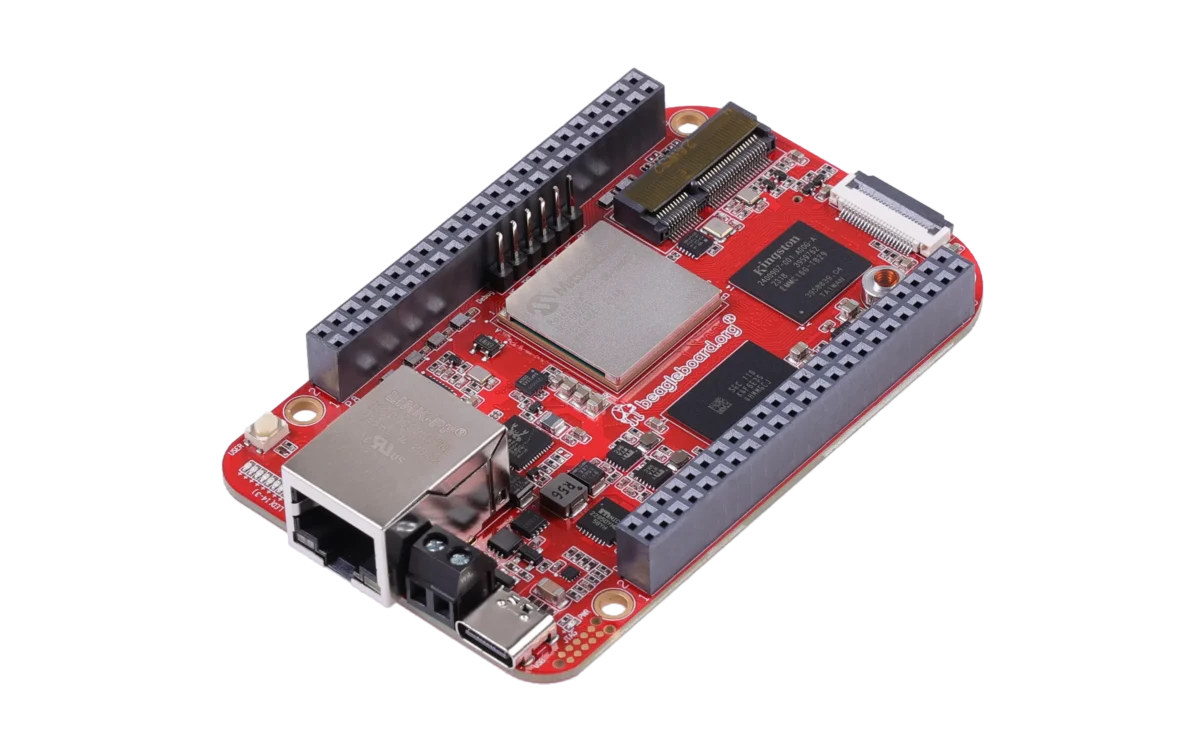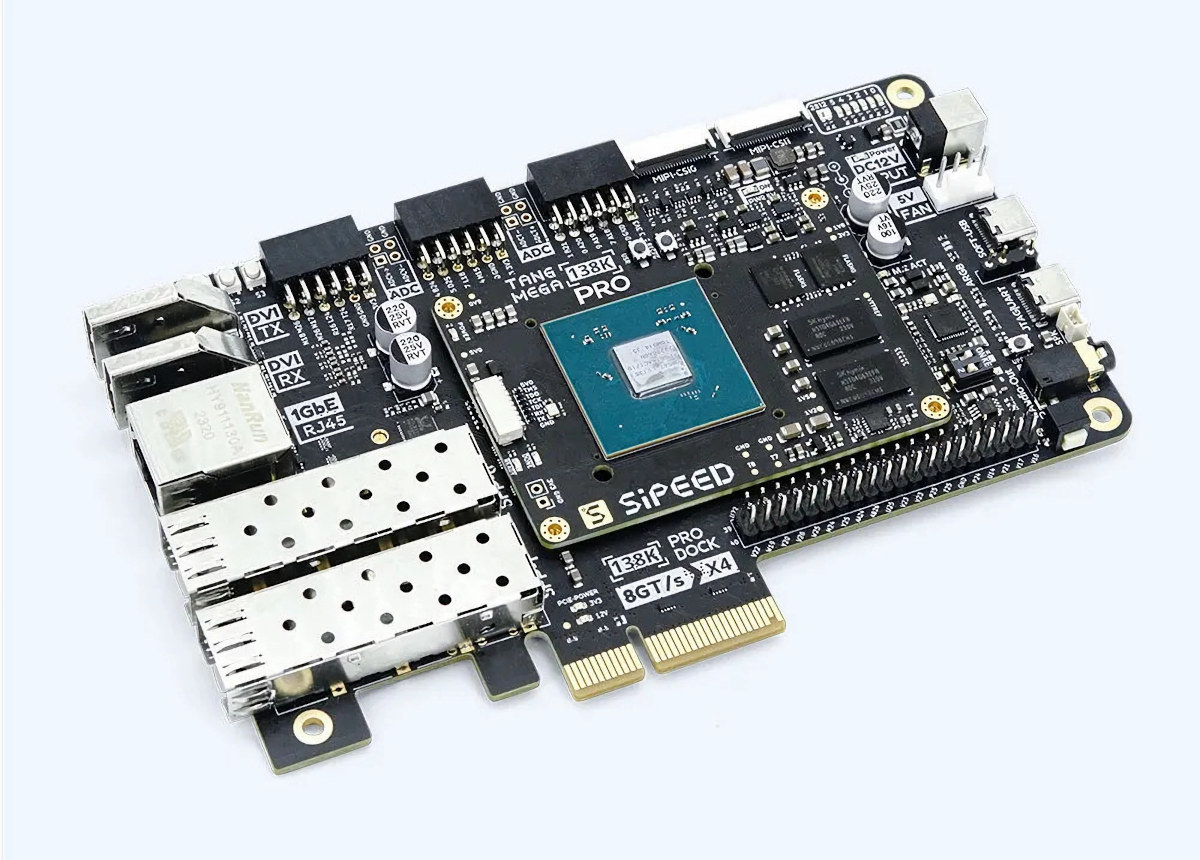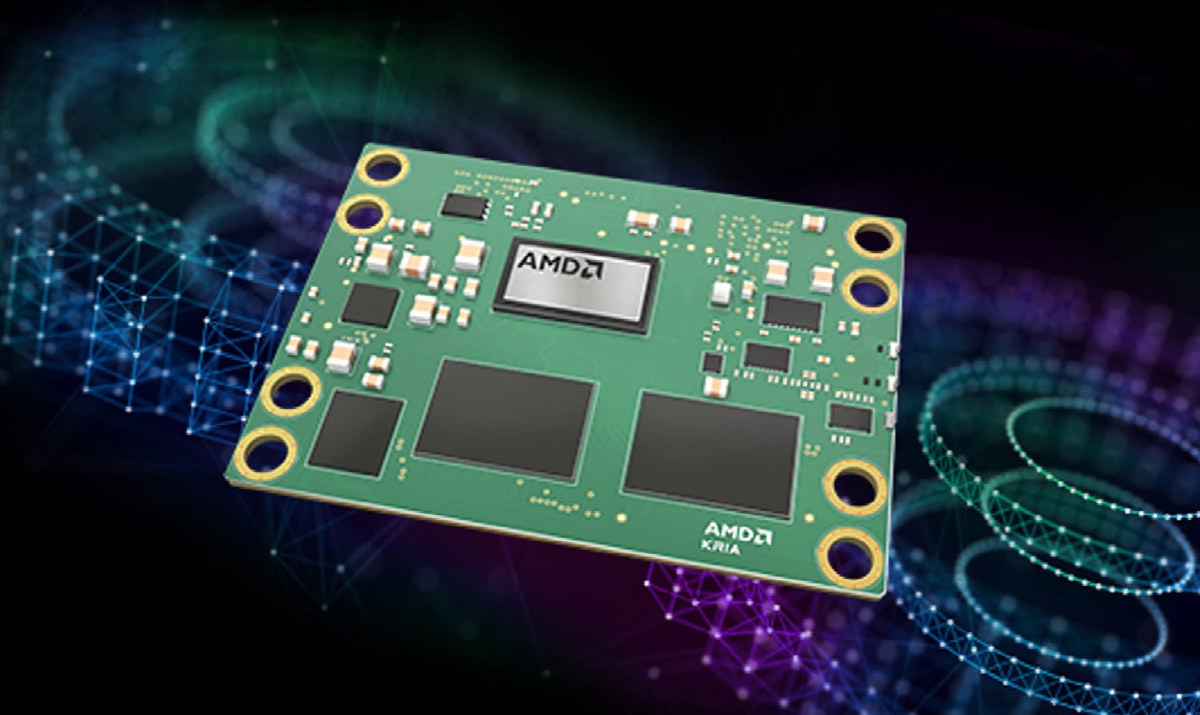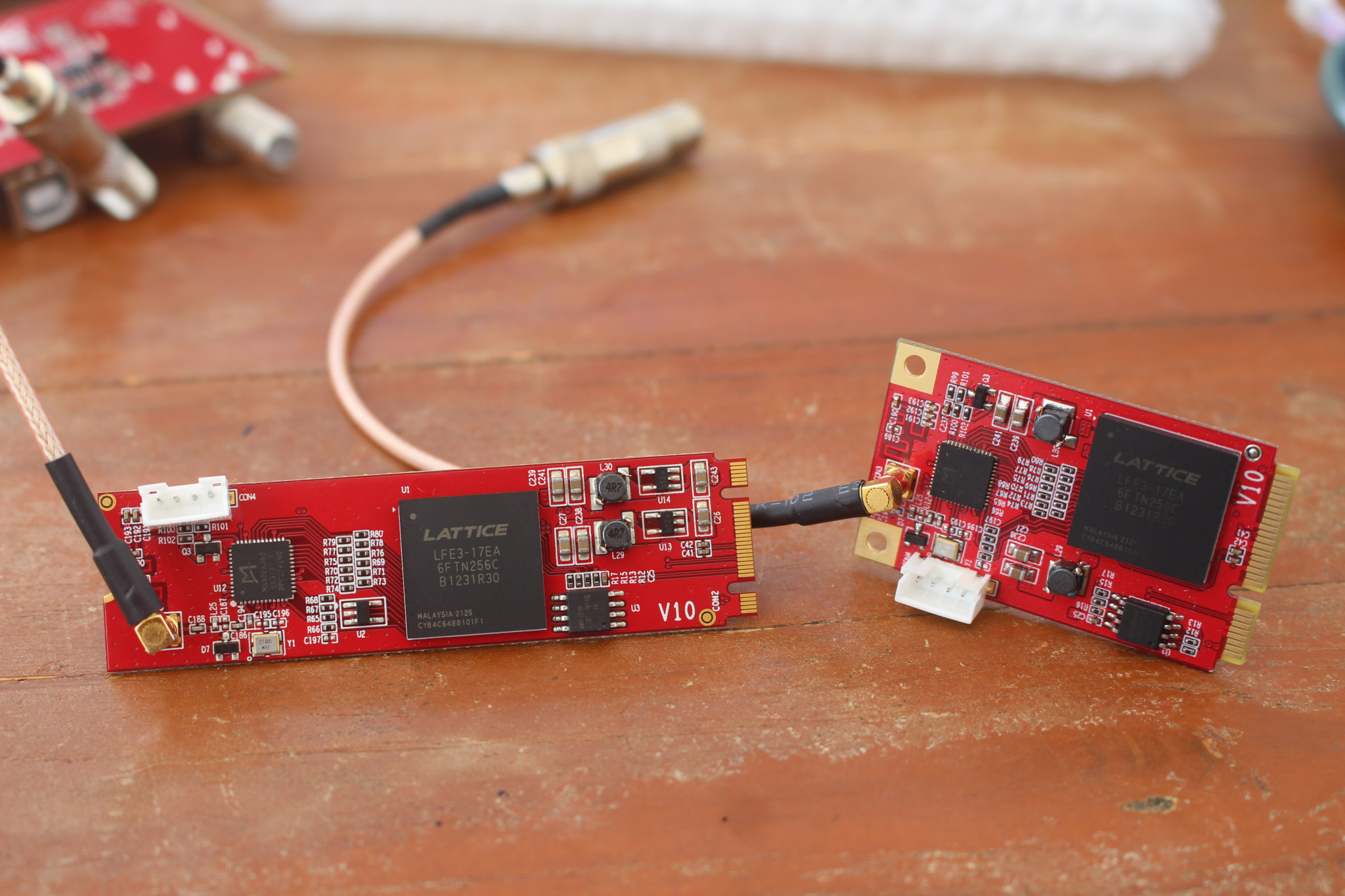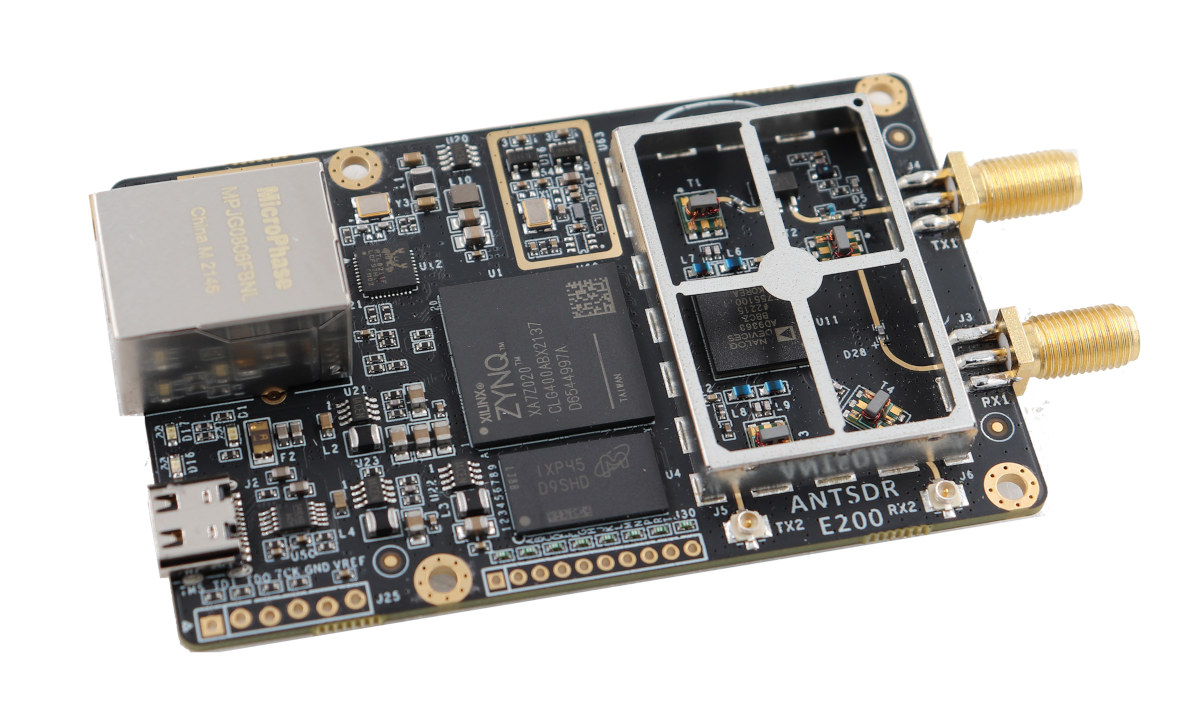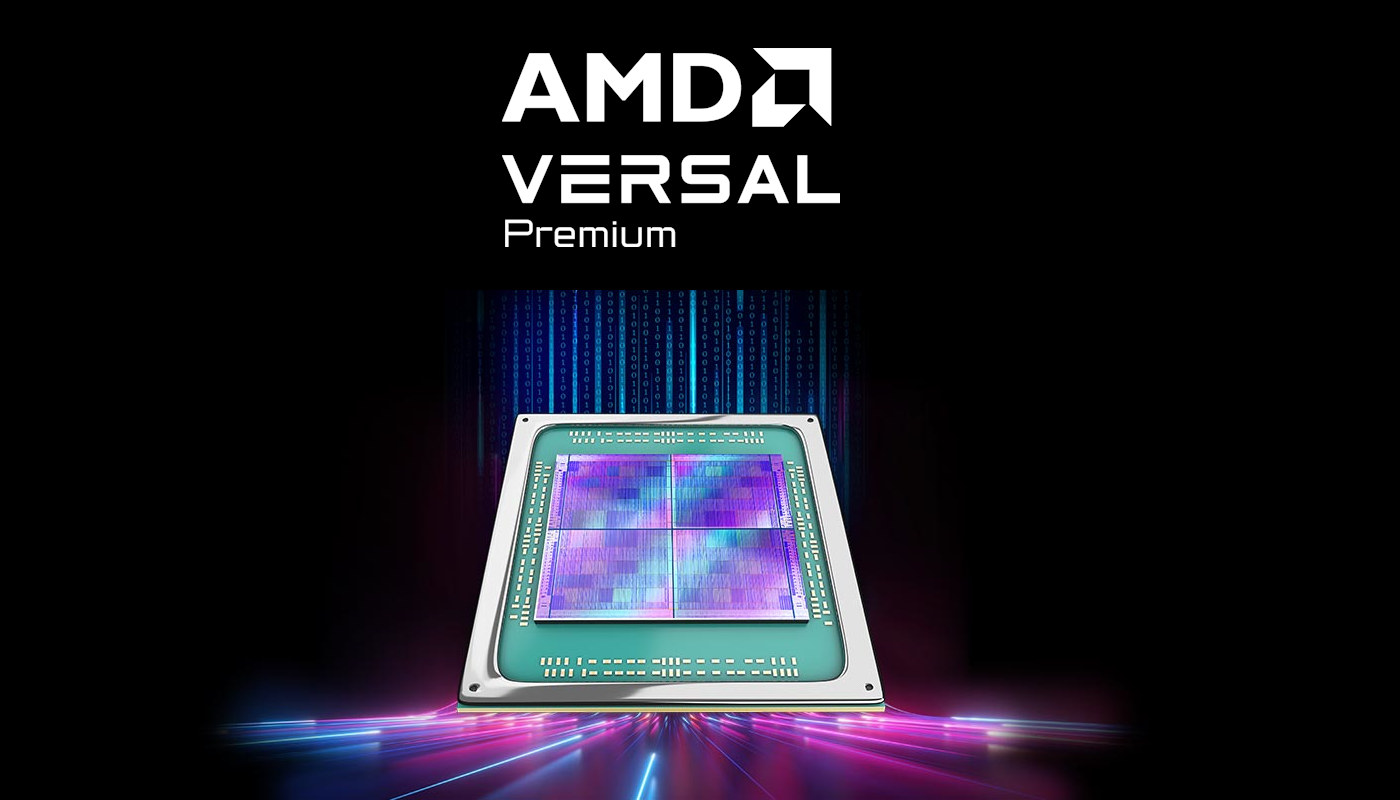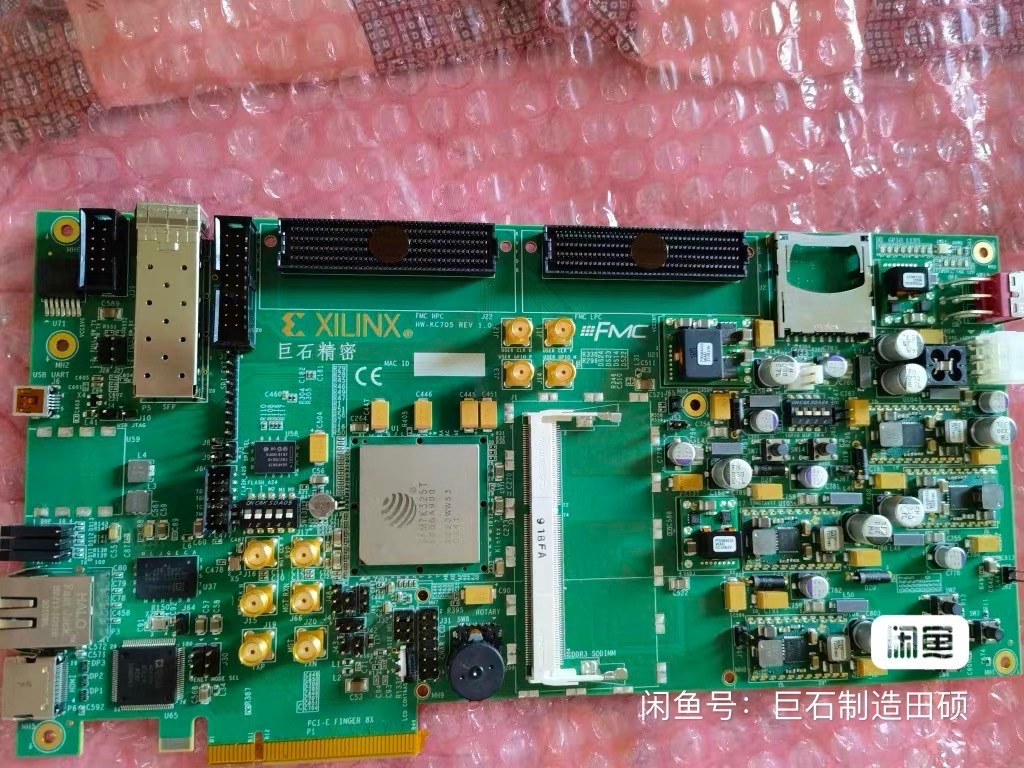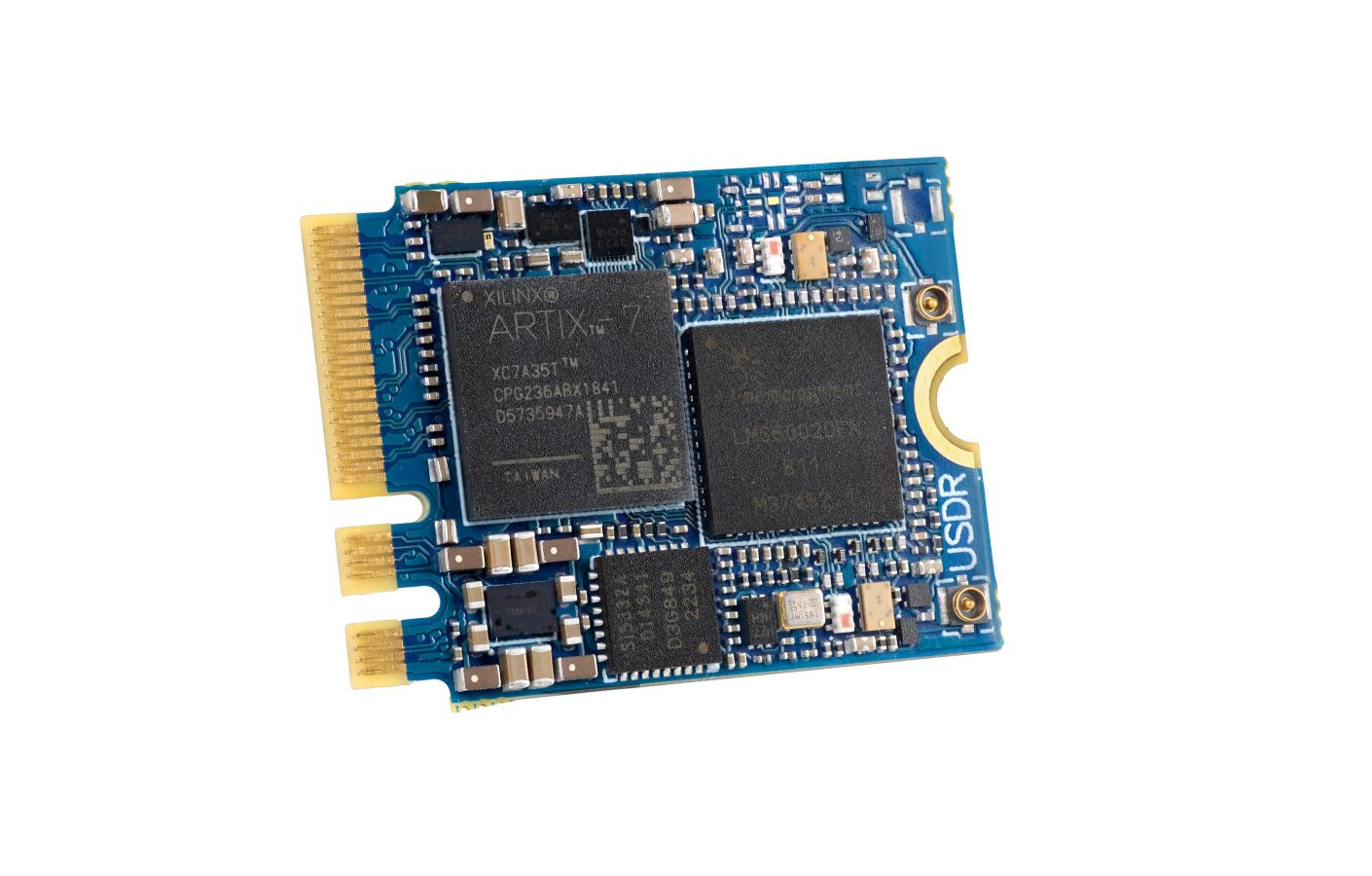BeagleV-Fire is a new single board computer powered by Microchip PolarFire MPFS025T penta-core RISC-V SoC FPGA that follows the BeagleBone Black form factor for compatibility with BeagleBone capes expansion boards. Microchip PolarFire RISC-V SoC FPGA was one of the first Linux-compatible RISC-V SoCs and was found in pricey boards such as the Icicle and TySOM-M-MPFS250 development boards. I also got an Icicle board for review, and while getting started with the Yocto Linux BSP was OK, I really struggled with the FPGA part including just installing Libero SoC in Ubuntu and going through the license, and even I gave up trying to run a bitstream sample on the board due to a lack of time. The BeagleV-Fire makes it much cheaper to try out the PolarFire and hopefully makes it easier to get started with both Linux and the FPGA fabric through easier-to-understand documentation and code samples. BeagleFire-V specifications: SoC […]
Sipeed Tang Mega 138K Pro Dock features GOWIN GW5AST FPGA + RISC-V SoC
Sipeed has launched another FPGA board part of their Tang family with the Tang Mega 138K Pro Dock powered by a GOWIN GW5AST SoC with 138K logic elements as well as an 800 MHz AE350_SOC RISC-V hardcore unit, and featuring a PCIe 3.0 x4 interface, DVI Rx and Tx, two SFP+ cages, a Gigabit Ethernet RJ45 port, and more. We’ve previously seen companies like AMD (Xilinx) and Microchip produce FPGA SoCs with hard cores such as the Zynq Ultrascale+ family (4x Cortex-A53) or the PolarFire MPSoC (4x 64-bit SiFive U54 RISC-V cores), but it’s the first time I see GOWIN introduce an FPGA + RISC-V SoC, as all the previous parts that came to my attention were FPGA devices. Sipeed Tang Mega 138K Pro Dock specifications: System-on-Module – Sipeed Tang Mega 138K Pro SoC FPGA – GOWIN GW5AST-LV138FPG676A with 138,240 LUT4 1,080 Kb Shadow SRAM (SSRAM) 6,120 Kb Block SRAM […]
AMD Kria K24 Zynq Ultrascale+ system-on-module targets motor control and DSP applications
The AMD Kria K24 System-on-Module (SOM) with a custom-built Zynq UltraScale+ MPSoC and the KD240 Drives Starter Kit are designed for the development of cost-sensitive industrial and commercial edge applications. The new Kria K24 is about half the size of a credit card and uses half the power of the larger, but connector-compatible, Kria K26 SOM that was introduced in 2021 for computer vision applications when the company was still known as Xilinx. That means existing K26 carrier boards can be reused with the Kria K24 SOM without modifying the PCB, but note there’s only one 240-pin connector on the new module, plus an extra 40-pin connector. AMD Kria K24 specifications: MPSoC – Custom-built Zynq Ultrascale+ XCK24 Quad-core Arm Cortex-A53 processor up to 1.3 GHz Dual-core Arm Cortex-R5F real-time processor up to 533 MHz Mali-400 MP2 GPU up to 600 MHz FPGA fabric with 154K logic cells AMD Deep Learning […]
M.2/mini PCIe card adds DVB-S2X/S2 tuner to desktop PCs and (some) SBC’s
TBS has designed two small DVB-S2X/S2/S tuner cards with the TBS7230 M.2 module and TBS7901 mini PCIe module designed to easily add DTB support to a desktop PC or even a single board computer with the right interfaces. Both models are based on a Lattice Semi LFE3-17EA-6FTN256C FPGA and Montage LZ M88RS6060 single-chip DVB-S2X/S2/S receiver with a tuner, a demodulator, and an LNB controller, but as I understand it, the mPCIe module relies on a USB PCIe (see comments section) interface, while the M.2 module features a PCIe interface and you can even install more than one in a PC through a PCIe card for NVMe drives. TBS7901 specifications: Host interface – Mini PCIe edge connector Tuner DVB-S2X/S2/S DVB-S2 QPSK – 1/2, 3/5, 2/3, 3/4, 4/5, 5/6, 8/9, 9/10 8PSK – 3/5, 2/3, 3/4, 5/6, 8/9, 9/10 16APSK – 2/3, 3/4, 4/5, 5/6, 8/9, 9/10 32APSK – 3/4, 4/5, 5/6, […]
AntSDR E200 – Gigabit Ethernet connected SDR with Xilinx Zynq SoC FPGA supports 70 MHz – 6 GHz range (Crowdfunding)
We’ve just written about the uSDR M.2 SDR module on Crowd Supply, but it turns out the crowdfunding platform is hosting another SDR (Software-Defined Radio) project with the AntSDR E200 board equipped with an AMD Embedded Zynq 7020 SoC FPGA and an Analog Devices AD9363 or AD9361 RF chipset, and providing Gigabit Ethernet connectivity to the host. The board can operate in the 70 MHz – 6 GHz range with the AD9361 chipset, and the 325 MHz – 3.8 GHz range with the AD9363, supports 2×2 MIMO with two SMA antenna connectors and two U.FL connectors, and also features expansion interfaces for GPIOs. AntSDR E200 specifications: SoC FPGA – AMD Embedded/Xilinx Zynq 7020 dual-core Arm Cortex-A9 processor and FPGA with 85K logic cells, 4.9Mb Block RAM, 220 DSP slices System Memory – 512MB DDR3 Storage – 256 Mbit QSPI flash for firmware; microSD card slot (bottom side) RF Chipset – […]
AMD Versal Premium VP1902 SoC FPGA provides 18.5M logic cells for SoC emulation and prototyping
AMD Versal Premium VP1902 adaptive system-on-chip (SoC) is said to be the world’s largest adaptive SoC with the FPGA providing 18.5 million logic cells in order to streamline the verification of complex ASIC and SoC designs. The new AMD Embedded SoC FPGA offers twice the capacity of the previous generation Virtex UltraScale+ VU19P SoC FPGA and is significantly larger than the Intel Stratix 10 GX 10M FPGA with 10 million logic cells. AMD Versal Premium VP1902 highlights: 18.5 million (18,504K) system logic cells, 8,460K LUTs 6,864 DSP engines Dual-core Arm scalar processors 2x Arm Cortex-A72 application processor 2x Arm Cortex-R5F real-time processor Memory 14x hardened DDR memory controllers 239 Mbit Block RAM 619 Mbit UltraRAM Up to 160 high-speed serial transceivers, including up to 32x 112Gbps PAM-4 GTMs and up to 128x 32.75Gbps GTYPs 2,328 SelectIO resources capable of operating at up to 3.2 Gbps Integrated hard IP – 16x […]
Fudan Micro JFM7K325T is a clone of AMD Embedded Kintex 7 325T FPGA
Shanghai Fudan Microelectronics Group, also known as FMSH, has designed a clone of the AMD Embedded (previously Xilinx) Kintex 7 325T FPGA found in some boards and modules in mainland China. We are used to seeing clones or fakes of the STM32 microcontrollers, but somebody called “whatever” on Twitter noted a full-featured board based on a clone of the Kintex-7 325T FPGA with 326,080 LUTS and 16 transceivers. Twitter users were quick to point out the board was based on Fudan Micro JFM7K325T, and that it was indeed a clone of the Kintex 7 325T FPGA. The company describes itself as a “domestic leading company specializing in the design, development, production (testing), and system solution provision of super-large-scale integration”, but the company’s website does not have any information about the JFM7K325T chip. I could not find the board above online, but I still found MagicChips’ MC-JFM7K325T core board based on […]
uSDR – A tiny M.2 SDR board controllable from your web browser (Crowdfunding)
uSDR is an embedded software-defined radio (SDR) M.2 board based on an AMD Embedded Artix-7 FPGA and designed to be controlled in the Chrome, Opera, or Edge browser without specific drivers or software thanks to WebUSB technology. The module can be inserted into any compatible host, or through M.2, USB, mini PCIe or PCIe adapters, and used from a web browser with ready-to-use applications such as a spectrum monitor or a signal analyzer, or your own JavaScript, C/C++, Rust, Go, or C# application thanks to WebAssembly and the Emscripten project. uSDR specifications: RFIC – Lime Microsystems LMS6002D programmable RF (FPRF) transceiver IC operates from 300MHz to 3.8GHz FPGA – AMD Embedded XC7A35T (Artix-7) FPGA with 33,280 logic cells Full-duplex TX & RX Frequency range – 300 – 3700 MHz (usable range typically starts from 230 MHz) RX/TX Bandwidth – 0.75 – 28 MHz plus bypass mode Clock generator – SI5332A […]


